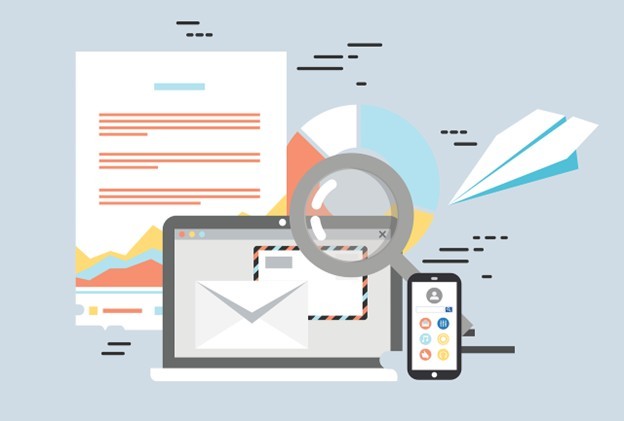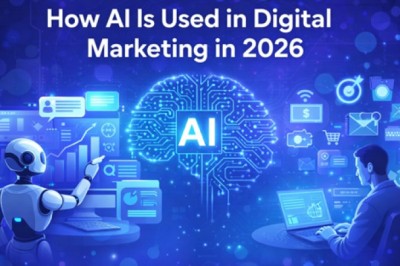views

Source: Pixabay.com
In the modern world, businesses of all sizes increasingly turn to Internet marketing to expand their reach, connect with their audiences, and drive sales. Internet marketing encompasses a variety of digital strategies, each serving unique purposes and contributing to a brand's online presence. From social media marketing and SEO to content marketing and email marketing, it offers a robust toolkit for engaging with potential customers and building lasting relationships. This article will explore the essentials of Internet marketing, with a closer look at email marketing as a cornerstone of successful online campaigns.
The Essentials of Internet Marketing
Internet marketing, or online marketing, is the promotion of products and services through digital channels, such as search engines, social media, email, and websites. Key areas include:
1. Search Engine Optimization (SEO): SEO improves a website's visibility on search engines, ensuring that potential customers can find a business when searching for relevant terms.
2. Content Marketing: This involves creating valuable, relevant content tailored to attract a target audience and establish the brand as an authority in its niche.
3. Social Media Marketing: Platforms like Facebook, Instagram, Twitter, and LinkedIn allow brands to engage directly with users, build communities, and drive traffic to their websites.
4. Pay-Per-Click Advertising (PPC): PPC campaigns, such as Google Ads, allow businesses to display ads on search engine result pages, paying only when a user clicks on an ad.
5. Affiliate Marketing: Businesses collaborate with individuals or companies (affiliates) who promote their products in exchange for a commission on sales.
The Role of Email Marketing in Internet Marketing
Email marketing remains one of the most effective tools for reaching audiences directly and nurturing customer relationships. While other forms of Internet marketing help attract attention, email marketing is crucial for retaining that attention and encouraging repeat interactions.
Benefits of Email Marketing
● High ROI: Email marketing boasts one of the highest returns on investment among digital marketing strategies. By targeting subscribers with personalized and relevant content, businesses can drive conversions efficiently and cost-effectively.
● Personalization Opportunities: With segmentation and personalized content, businesses can tailor emails based on user behavior, preferences, or purchase history, making messages more relevant and engaging.
● Customer Retention: Email marketing allows brands to maintain consistent communication with their customers, sharing updates, promotions, and useful information that keeps them engaged.
● Automation Capabilities: Tools like welcome sequences, abandoned cart reminders, and promotional emails can be automated to reach customers at key moments in their buyer's journey.
Best Practices for Email Marketing
To make the most of email marketing, brands should follow several best practices:
1. Segmentation: Divide your audience into segments based on their interests, behaviors, or demographics to send more targeted and relevant content.
2. Compelling Subject Lines: The subject line is the first thing a subscriber sees, so it should be catchy, and relevant, and encourage them to open the email.
3. Personalized Content: Use the subscriber’s name and other personalized details to create a more engaging and tailored experience.
4. Clear Call to Action (CTA): Each email should include a clear and compelling CTA, guiding subscribers toward the desired action, whether it’s visiting a website, making a purchase, or signing up for an event.
5. Mobile Optimization: With the majority of users opening emails on mobile devices, it’s crucial that email templates are mobile-friendly and load quickly.
Examples of Effective Email Campaigns
● Welcome Series: A sequence of introductory emails that greet new subscribers and introduce them to the brand's values, products, or services.
● Promotional Campaigns: These emails feature special offers, discounts, or limited-time promotions, driving immediate sales.
● Re-engagement Campaigns: For inactive subscribers, these campaigns aim to bring them back with special offers or relevant content.
● Seasonal Campaigns: Highlighting products or services in connection with holidays, sales events, or seasonal trends to attract customers during peak times.
Integrating Email Marketing with Other Digital Strategies
For maximum effectiveness, email marketing should be part of a broader Internet marketing strategy. For example:
● Combine with Social Media: Use social media to promote newsletter sign-ups, or repurpose popular social content in your email campaigns.
● Link with SEO and Content Marketing: Include links to blog posts, videos, or guides in your emails to drive traffic to your website and enhance engagement with your content.
● Enhance Retargeting Efforts: Leverage email data for retargeting ads that appear on social media or search engines, reinforcing your message and encouraging conversions.
Conclusion
Internet marketing offers an array of tools to help businesses connect with their audiences, and email marketing stands out as an essential component for nurturing relationships and boosting engagement. With its ability to reach customers directly and deliver personalized, relevant content, email marketing can transform prospects into loyal customers. When integrated into a cohesive internet marketing strategy, it can amplify the effectiveness of SEO, content marketing, and social media, creating a holistic approach that drives business growth.






















Comments
0 comment